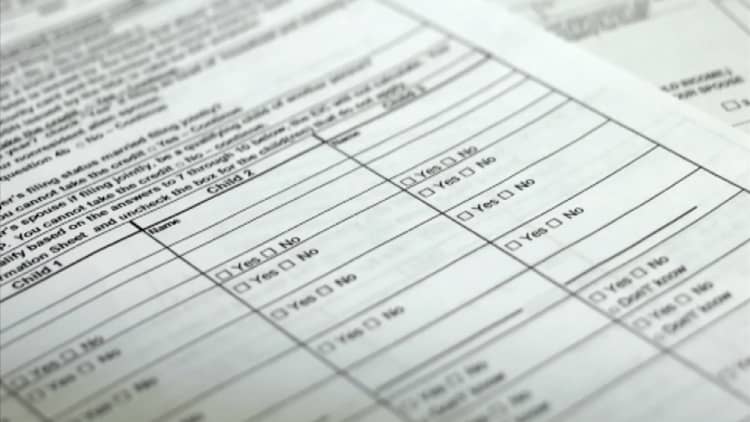As tax season heats up, there are a few outstanding issues and frequently asked questions the IRS wants to address. It has put forward a report to offer some basic information and help counter some common misconceptions.
Here are three of the most persistent myths the IRS encounters.
Myth 1: All refunds are delayed
You don't need to worry about your federal tax refund being delayed this year, at least not for the most part. The IRS issues more than nine out of 10 refunds in less than 21 days, according to the report.
However, while most refunds are issued in less than three weeks, the report states, some may be delayed. "By law, the IRS cannot issue refunds for tax returns claiming the Earned Income Tax Credit or the Additional Child Tax Credit before mid-February."
So, even if you filed in January, if you claimed an EITC or ACTC, you likely won't see a refund until Feb. 27, assuming you opted for direct deposit and there are no issues with your return.
"Other returns may require additional review for a variety of reasons and take longer," the report continues. "For example, the IRS, along with its partners in the tax industry, continue to strengthen security reviews to help protect against identity theft and refund fraud."
Most filers, nonetheless, will see a quick refund, especially if they file online and opt for direct deposit versus mailed paper refunds. E-filing is "the safest, fastest way to receive a refund," the report notes.

Myth 2: You should call the IRS
A call to the IRS likely won't help you find out any new information about your refund. Instead, the IRS suggests using the official website or mobile app to check your status.
The IRS website offers the same information as its telephone operators do, "so there is no need to call unless requested to do so by [our] refund tool."
Also, the website "provides many self-service tools for individuals, businesses and tax professionals," the IRS notes. For example, "taxpayers can view their tax account, get answers to common questions such as eligibility for a tax benefit or find free tax preparation help."

Myth 3: The IRS will call or email you
If you receive a call, text or email from someone claiming to be from the IRS, it's probably a scam. "The IRS doesn't initiate contact with taxpayers by email, text messages or social media channels to request personal or financial information," the reports notes.
An official would "never call to demand immediate payment using a specific payment method, such as a prepaid debit card, gift card or wire transfer. Generally, the IRS will first mail a bill if taxes are owed."
The IRS also won't threaten to immediately bring in law enforcement to arrest you for not paying taxes, demand taxes be paid without giving you an opportunity to question or appeal the amount owed or ask for credit or debit card numbers over the phone.
If you haven't yet filed your taxes, here are some mistakes you should look to avoid. And, if you find yourself with a big refund, here are some smart ways to put it to use.
Like this story? Like CNBC Make It on Facebook!
Don't miss: 5 best—and worst—places in the US for getting a tax refund
Video by Brandon Ancil




